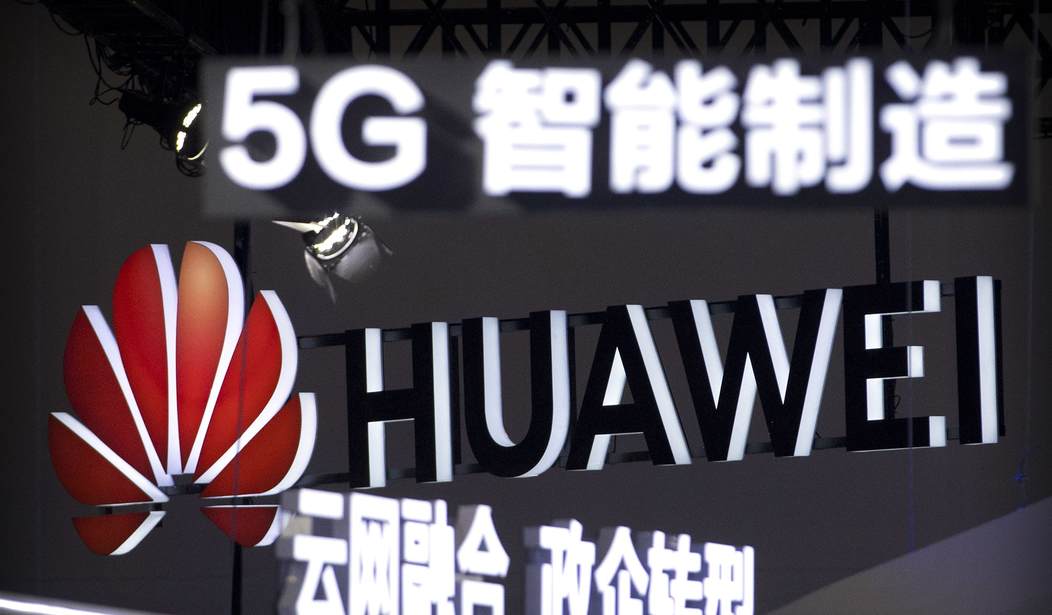As Chinese telecom giant Huawei unveils its new foldable phone and President Donald Trump seemingly softens his rhetoric on potentially continuing an executive order banning the sale of Huawei products in the US, a debate continues on exactly what role the company plays in any future trade deal between the two countries.
Trump tweeted Saturday the two countries had made progress on trade talks and that a proposed March 1st tariff increase was being delayed thanks to those deliberations. This may please some conservatives who see blocking Huawei as a form of protectionism, but others take a more hardline stance when it comes to negotiating with the Chinese over telecom technology.
Gordon Chang, author of “The Coming Collapse of China,” believes it’s virtually impossible for the U.S to be assured the Chinese will behave ethically in a trade deal, particularly in regard to Huawei, which he says is a company that was built from intellectual property theft of American companies like Cisco.
“I think we should disengage with China on trade altogether,” Chang says. “We do not want Beijing taking all the data and information from the U.S. by making Huawei part of the backbone of our telecom system and sucking it into Chinese networks. That would be a disaster.”
Chang uses Huawei’s involvement in the African Union as proof of behavior by recounting the investigation that uncovered the company’s reported hacking of the organization’s headquarters between 2012-2017.
“Huawei is a criminal enterprise and we should not have it as part of U.S. telecom infrastructure, full stop,” Chang adds. “It works on behalf of the Chinese state, which does not believe in comparative advantage. But beyond that, China takes the proceeds of commerce with the U.S. to build up its military, which is configured to kill Americans.”
Recommended
The Trump administration is gearing up for talk trade with Chinese President Xi Jinping in coming months. Chang predicts the Chinese president will make Huawei a focus of the talks, particularly the 2018 Defense Authorization Act provision in which the Trump administration banned US government and government contractors from using Huawei technology due to concerns that the Chinese company may be interested in possible surveillance and data collection. In fact, U.S. officials reportedly reached out to other countries last year, especially those with American military bases, to warn against using Huawei technology.
Now, with a trade deal hanging in the balance and a push to develop 5G technology — with Huawei one of the companies at the forefront of that technology — the question of what kind of influence the Chinese state has over the company and whether the U.S. should make reigning in Huawei part of the broader trade deal has taken on new urgency.
“My sense is that anything can happen,” Chang says. “I expect Xi Jinping will put Huawei at the top of agenda with a goal of not banning their technology. But the Chinese know they are cynically offering a deal they can’t honor when they say they’ll promise to buy $1.2 trillion in American goods. That would be, on its face, a violation of the non-discrimination agreement required by membership in the World Trade Organization. They would have to honor that promise to all other 162 nations in the WTO. That’s not a promise they can meet.”
Chang says the good news is that China needs the U.S. as a trade partner and that their economy is in trouble, with or without an agreement. A situation exacerbated by a president who, Chang says, believes in a state-dominated economy and a movement backward toward trade policies embraced in the 1950s.
However, Chang predicts a trade deal will happen and that the U.S. will continue its “groundhog day” with regard to Chinese trade agreements.
“There will be a trade deal and the Chinese will violate them and we’ll have disputes,” Chang says, with a nod toward every administration’s attempts to change the way the U.S. works with China on trade. Despite knowing what’s coming, Chang remains resolute.
“We should not be doing things to extend the life of the Chinese economy,” Chang says

























Join the conversation as a VIP Member